-
How Intraocular Lenses Can Address Your Cataracts
Cataracts usually develop very slowly. These cloudy areas of the eye’s lens cause blurry vision, double vision, and sensitivity to light. When your symptoms start to interfere with your daily life, it’s time to visit a cataract surgeon near Chicago. During your cataract procedure, the cloudy lens will be removed and replaced with an intraocular lens (IOL). This lens is a flexible, synthetic lens that functions just like a natural, healthy lens would. It receives light and focuses it on the retina at the back of the eye. This allows your brain to receive images via the optic nerve.
Your cataract surgeon can walk you through the types of IOLs available to you. He or she might suggest an aspheric IOL, which mimics the natural variations in the curve of the eye’s lens. This could help you enjoy sharper vision. On the other hand, your ophthalmologist may recommend a toric IOL if you have nearsightedness, farsightedness, or astigmatism. This lets you see things clearly, without the blurriness that astigmatism causes.
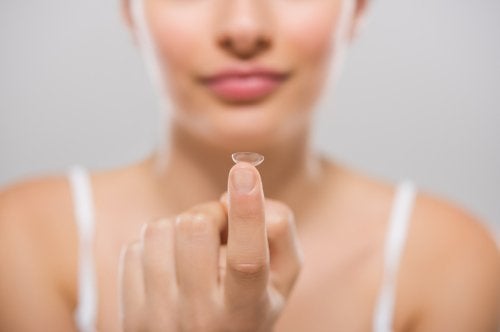
-
Safeguarding Your Eyesight with Protective Eyewear
Many of the emergency visits to ophthalmology offices near Chicago are
the result of eye injuries. Power tools, lawn mowers, and sports activities are all common causes
of serious eye trauma. When you watch this featured video, you’ll
hear an ophthalmologist explain that about 90% of eye injuries could be
prevented simply by wearing protective eyewear.Talk to your eye doctor about the type of protective eyewear that’s
right for you. Some types are designed specifically to protect the eyes
of athletes, while others are better suited to yard work or a construction
site. If you typically wear eyeglasses instead of contact lenses, you
can get your protective goggles customized to your vision prescription
for greater convenience. -
What Patients Should Know About Cataract Surgery
Some people can’t even touch their eyeballs, so the prospect of cataract surgery near Chicago might seem a little scary at first. Do a little research about the process , and talk to your cataract surgeon so that you know what to expect. This can help you prepare, which can then make you more comfortable. You should know why cataract surgery is important, how to get yourself ready, and what you’ll experience when you meet with your eye doctor. Here’s a closer look at what patients should know about cataract surgery.
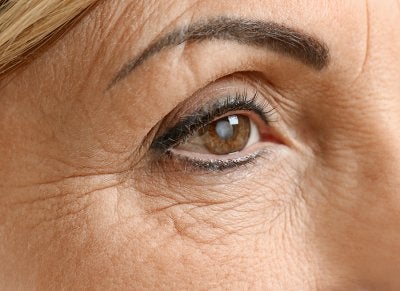
Reasons You Should Deal with Cataracts
Just like on a camera or a microscope, the lens of your eye helps you focus an image so that you can see it clearly. When you develop cataracts, however, the lens clouds up and becomes blurry. This can be distracting and takes away from your ability to appreciate a beautiful sight, so it may significantly impact your quality of life. There are steps you can take to gain your vision back, and your eye doctor may recommend cataract surgery. This procedure can restore clarity and color to your vision so you can enjoy life’s scenery the way you always have.
How to Prepare for Surgery
Before you get started with cataract surgery, your eye doctor will explain how intraocular lenses—or IOLs—work and what to expect when you go in for treatment. He or she will need to take measurements in order to create the right IOL, and you will need to tell your eye doctor about any medications that you’re currently taking. In some cases, you might have to refrain from taking these medications for a certain period of time.
What the Procedure Is Like
You might need to refrain from eating prior to cataract surgery. After numbing your eye, your doctor will carefully cut near the cornea to access the lens. The goal is to break down the cataract and replace the lens with an IOL. Your incisions should heal on their own, so you most likely won’t need stitches. After about a half hour in the recovery area, you can leave.
-
Keeping Your Eyes Safe Around Fireworks
Summer is the season for dazzling displays of fireworks, and the Fourth of July tends to be the pinnacle. If you want to be safe and keep your eye doctor in Chicago happy while you enjoy the view, be sure to practice proper eye care . Look at this video clip for tips on keeping your eyes safe around fireworks.
There’s a lot to love about the summertime, from days at the beach to ice cream cones in the backyard. For many families, it’s tradition to go out and see a fireworks show on the Fourth of July. Fireworks can be beautiful, but they’re equally bright. If the light gets to be too much, consider putting on a pair of sunglasses. You can also try to distance yourself from the spectacle to avoid such intense exposure. Whether you prefer sparklers, bottle rockets, or firecrackers, practice proper eye care.
-
Spotlight on Helen Keller Deaf-Blind Awareness Week 2017
There are people in the world who face extreme obstacles daily, and many of us can’t even imagine the struggles they go through. Helen Keller is an excellent example of someone who combatted serious handicaps in both deafness and blindness, and there is much to learn from her story. While a cataract surgeon or eye doctor in Chicago will have intimate knowledge of blindness, most people have a great deal to learn. Keep reading as we put the spotlight on Helen Keller Deaf-Blind Awareness Week 2017.
No matter how well our intentions may be, we can only focus our efforts on solving a problem after we’ve become aware of it. Most people over a certain age understand what deafness and blindness are, but there is much more to learn about these conditions. When you go about your daily life, you might not think about what your normal routine would be like without one or more of your senses. The purpose of Helen Keller Deaf-Blind Awareness Week is to take a week out of each year to discuss the presence of deaf-blindness in families within our communities so we can all widen our perspectives.
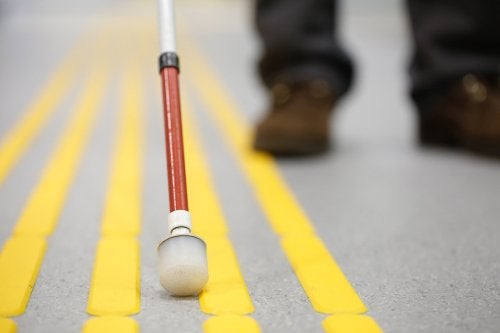
-
Get the Facts About Glaucoma
Too much pressure can be bad for your eyes, and it can lead to serious issues that affect your vision. Since vision loss can be permanent, you should practice excellent eye care and talk to your eye doctor in Chicago about how you can protect yourself. You might not notice your symptoms right away, and the disease can continue to progress if you don’t do anything about it. Open-angle glaucoma actually damages your optic nerve, which connects your eyes and brain. Feel free to read ahead if you would like to get the facts about glaucoma.
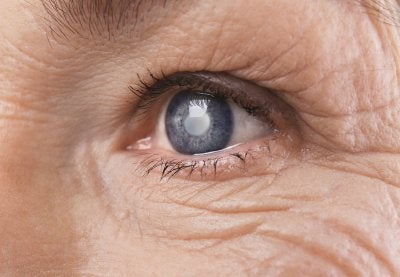
Symptoms Occur Slowly
Finding out that a given condition doesn’t always have symptoms might seem like a blessing, but sometimes it can do more harm than good. If you don’t notice anything different when you go about your daily life, you probably won’t be in a rush to meet with your eye doctor. When you first develop open-angle glaucoma, there won’t be any symptoms to notice. Everything will feel normal for a period of time, and then your peripheral vision will start to decline. If you don’t visit your eye doctor to create a treatment plan, you may lose your central vision over time as well.
Glaucoma Is Treatable, But Not Curable
Once you have lost some of your vision due to glaucoma, you can’t have it restored. This is why it’s extremely important that you visit your eye doctor for regular checkups. Since you won’t notice any symptoms of the disorder until your vision starts to go, preventative maintenance becomes even more essential. Your eye doctor can prescribe you medication to slow down the progression of the disease by lowering the pressure in your eyes. You can also talk to your eye doctor about surgery or laser trabeculoplasty.
Open-Angle Glaucoma Damages the Optic Nerve
One of the main factors involved in glaucoma is pressure. When fluid won’t properly drain from the eye, you may end up with glaucoma. This retention of fluid ultimately causes the buildup of pressure that damages your optical nerve, which can in turn result in loss of vision.
-
The Patient’s Guide to IOLs
If you’re having trouble with your vision, your eye doctor in Chicago might recommend the use of intraocular lenses , or IOLs. These intraocular implants can help patients deal with certain types of eye diseases, and in doing so they can improve their happiness and comfort. There are a few different kinds of IOLs, and you can discuss the different types with your ophthalmologist to find out which might be right for you. However, they are typically all made of the same material. Read ahead for a quick look at the patient’s guide to IOLs.
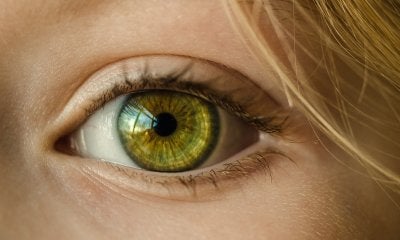
When IOLs Are Appropriate
The human eye has many different parts, from the pupils that adjust to let different amounts of light in, to the retinas in the back of the eyes where the images land. When it comes to focusing and visual acuity, you rely primarily on your lenses. Unfortunately, many peoples’ lenses gradually lose strength over time. If you have severe cataracts, then your eye doctor may remove your lens entirely. In this case, the ophthalmologist may replace your original lens with an IOL, which is just an artificial replacement lens. By replacing your cataract lens with a clear new one, you can alleviate issues like blurriness and dulled colors.
Types of IOLs
When you talk to your eye doctor about the possibility of an IOL, you will find that there are quite a few different kinds. A monofocal IOL tends to be the go-to choice after cataract surgery. People typically use these IOLs for distance and wear eye glasses for reading. Toric IOLs are helpful for those with astigmatism, and multifocal IOLs handle both distance and close-up vision. You can also talk to your eye doctor about accommodative IOLs, which can actually change shape after being placed.
What IOLs are Made of
Although there are different kinds of IOLs that you can use after cataract surgery, most of them are made of acrylic or silicone. Additionally, intraocular lenses may help protect your eyes from overexposure to ultraviolet rays. This can prevent additional damage to your eye health in the future.
-
The Truth About Glaucoma Symptoms
Some eye conditions are obvious, but others require the help of an eye doctor in Chicago to diagnose. Even those who practice excellent eye care may run into certain eye health issues, so it’s wise to maintain a working relationship with your ophthalmologist. Glaucoma is one eye condition that can compromise your vision and ultimately change your quality of life. You might not notice signs of the disorder on your own, but your professional will be able to detect its presence. Read on for the real truth about glaucoma symptoms.
Glaucoma symptoms are tricky because they don’t always exist. In fact, many people with glaucoma don’t experience any symptoms at all until the disease progresses. Those who do notice symptoms of this condition may experience blurred or distorted vision. As the disease progresses, you might experience vision loss as well. Angle-closure glaucoma is a rare kind that may cause nausea and eye pain. Since there is no cure for glaucoma and you might not actually experience symptoms, it’s extra important that you visit your eye doctor for screenings. Your ophthalmologist can check for signs of glaucoma, and he or she can devise a treatment plan if you appear to have the disease.
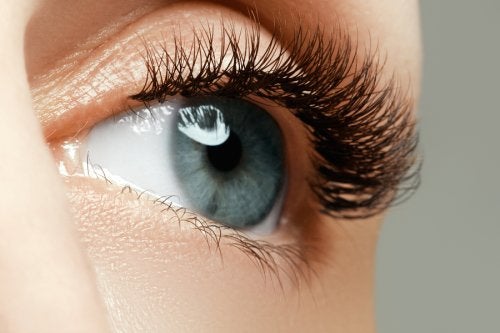
-
Protecting Your Eyes from UV Rays
The light that we get from the sun comes in the form of ultraviolet, or UV, rays. While the first sunny day of spring might improve your mood, exposure to these rays comes with implications for your eye care near Chicago. Talk to your eye doctor about how to keep your eyes healthy , and watch this video on protecting your eyes from UV rays.
Overexposure to UV rays can fade your carpets and furniture, burn your skin, and even damage your eyes. This is why you should do your best to protect yourself from overexposure when you spend time in the sun. Sunglasses can be effective, but you should choose a pair that blocks 100% of both UVA and UVB rays, so be sure to check the label. It’s also a good idea to wear a hat for extra protection. Keep in mind that UV rays can even damage your eyes on cloudy days.
-
May is Healthy Vision Month
Although you should practice proper eye care every day, May happens to be Healthy Vision Month. The purpose of this campaign is to raise awareness about the importance of eye health and teach people how they can keep their vision sharp for the rest of their lives. In order to stay on top of your eye health, you should know a little bit about your family history and what you might be susceptible to. Do your best to protect your vision when you’re out and about, and see your eye doctor in Chicago for routine checkups. May is Healthy Vision Month, so continue reading to learn about the principles it focuses on.
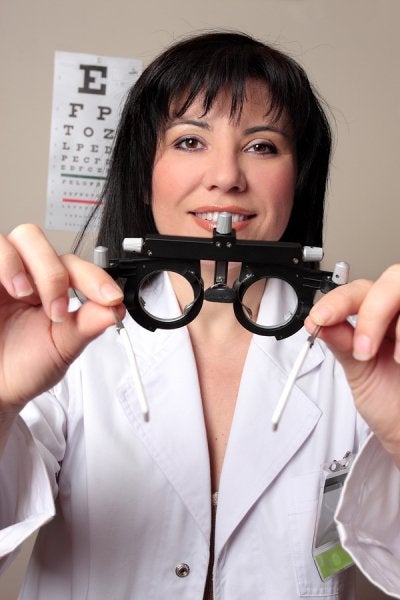
Know Your Family History
You are who you are thanks to nature and nurture, and both of these constructs play a role in your eyesight as well. Some of the traits that make you who you are will have been passed down through your bloodline. For this reason, it’s a good idea to know what kinds of health issues run in your family. Just like heart disease and bipolar disorder, eye conditions can be hereditary. Celebrate Healthy Vision Month by learning about your family’s eye health.
Protect Your Eyes
Your eye doctor wants the best for your eyes, but you need to do your part to keep your vision sharp. Overexposure to ultraviolet rays can have a negative impact on your vision and even lead to eye health issues. When you go outside, be sure to wear sunglasses that block out ultraviolet rays. It’s also a good idea to stay in the shade, and you can even wear a hat for extra coverage. The better you protect your eyes, the happier your eye doctor will be during your next visit.
See Your Eye Doctor
Proper eye health is a team effort, so you can’t handle it alone. Your ophthalmologist knows what’s best for your eyes, and he or she can screen you for diseases that you might not catch yourself. If you haven’t seen your eye doctor lately, take the opportunity to make an appointment during Healthy Vision Month.
